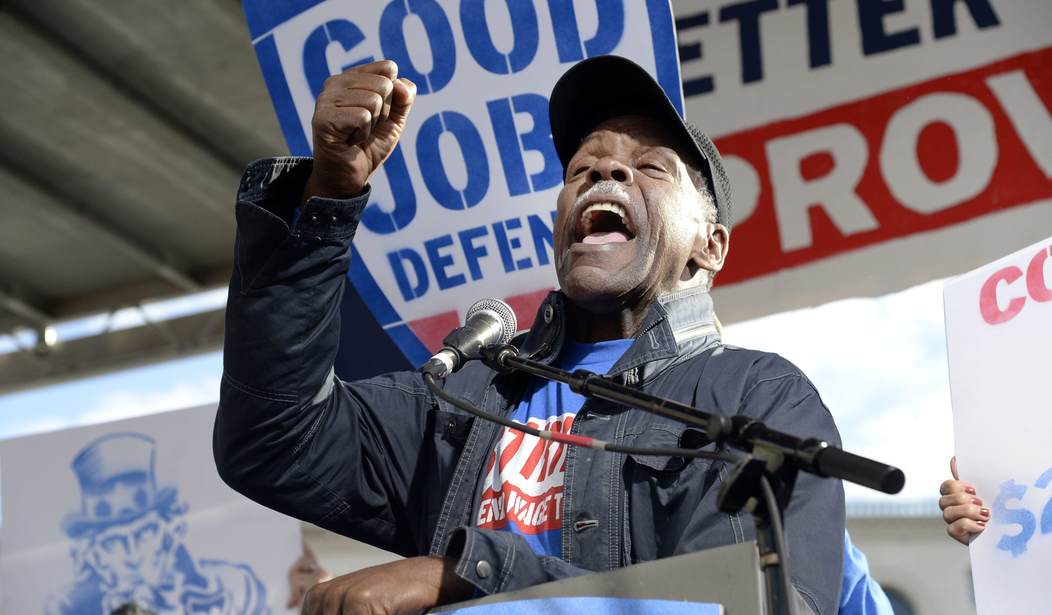WASHINGTON – Actor and political activist Danny Glover challenged the United States to figure out ways to rectify the violence committed against people of color, describing America’s history as one of “annexation” and “violence.”
“When we look at U.S. policy, and we look at U.S. policy from its outset, the annexation of Cuba, the annexation of the Philippines, the annexation of Puerto Rico, all of this was a product of U.S. expansionism as it was before the annexation of lands that were part of Mexico. The history of this country is one of annexation, you know, and it’s also one of violence,” Glover said via Skype during a discussion this month on racial justice at the Institute for Policy Studies.
Glover said Martin Luther King, Jr. “understood” the history of violence in the U.S. when he talked about racism and materialism. Glover cited civil rights activist W.E.B. Dubois, as well.
“He said, I still believe the issue of the 20th century is the issue of color at the same time, and I’m paraphrasing, at the same time, I believe something else that I probably didn’t understand, is that people, the few who are willing in order to maintain their privilege to allow a majority of people to live in ignorance and poverty, etc., and the way in which they do that is through war and invariability. The people who are the victims of that policy are people of color,” Glover said.
Glover added that every war since World War II has been against “people of color.”
“As we look at every single war beyond World War II, it’s been against people of color – every single war that’s occurred, every single intervention has been against people of color, you know,” he said.
Glover, who was friends with late strongman Hugo Chavez, mentioned Venezuela as one of the countries addressing the “violence against indigenous people.” He pointed out that the United Nations has declared the decade from January 2015 through December 2024 as the international decade for people of African descent. Glover challenged the U.S. and other countries to work on “rectifying” the violence against people of color with solutions to problems related to mass incarceration and healthcare.
“How do we use that decade, how do we use that moment and now, rectifying and also putting together political projects that deal with this issue of violence, whether it’s mass incarceration, whether it’s political prisoners, whether it’s healthcare?” Glover asked.
Earlier this year, Glover called for nations around the world to “apologize” for slavery with reparations for Afro-descendants.
“I call upon you today as policy representatives and socially conscious citizens, public servants of our countries guided by personal ethics, religions, faith and/or official oath of office to avow a commitment to democracy, justice, equality and human rights. The call today for reparatory justice for Afro-descendants is an imperative for expanded democracy and spiritual and material well-being. It is a test case for human decency that conforms to the accepted standards of morality,” Glover said in a speech before the Permanent Council of the Organization of American States (OAS).
“The negative consequences of inattention or of insufficient attention to the legitimate demands of Afro-descendants in all of our societies for official national apologies for recognition of enslavement of Africans as a historical significant crime against humanity requires emotional, psychologist and material repair and reflection,” he added.
Dhoruba bin Wahad, a former leader of the Black Panther Party and Black Liberation Army, said violence against minorities has come in various forms.
“The U.S. as an empire both domestically and internationally has fostered the concepts and anti-democratic attitude that all the citizens of the nation are potential criminals and everybody is a potential terrorist, and therefore we need virtualized policing, tough immigration laws to keep certain people out of the United States, to deport other people who are in the U.S. without papers,” bin Wahad, who served 19 years in prison, said during the discussion.
“We have to understand mass incarceration as a feature of the national security state as it’s presently constituted,” he added.








Join the conversation as a VIP Member